
Can Your Horse Benefit From Being Barefoot?
Is barefoot right for your horse? Learn why and how farriers transition shod horses to barefoot.

Is barefoot right for your horse? Learn why and how farriers transition shod horses to barefoot.
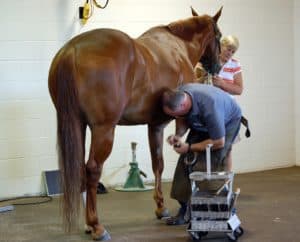
Read about the steps veterinarians and farriers take to identify, evaluate, and treat riding horses’ hoof problems.
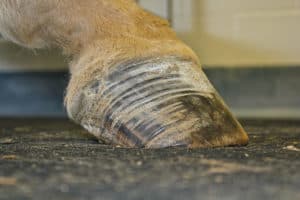
Find out how to recognize when a horse is at risk of developing EMS-related laminitis and what you can do to either prevent or manage it so he stays sound.
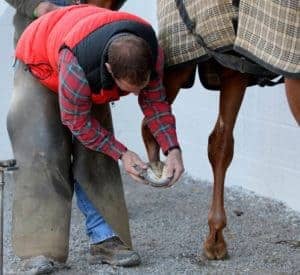
Keep your horse sound and moving safely this winter with these smart hoof care practices.
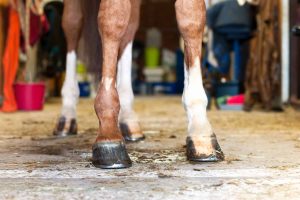
Even horses with less-than-ideal feet can lead sound and productive careers.
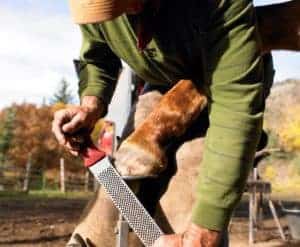
Learn how smart trimming and shoeing techniques can help arthritic horses.

Cadaver hoof study confirms expectation that heart-bar shoes can reduce coffin bone motion in horses with laminitis.

Going barefoot can benefit hoof health, but consider management and physical needs before pulling shoes.

What’s in your horse’s hoof-care box? Here are the items that hoof care professionals recommend you keep on hand.

Detecting and managing osteoarthritis in its early stages can go a long way toward keeping your horse sound, comfortable, and happy in his job for years to come.

How farriers trim and shoe horses for their unique biomechanics, discipline, and riding surface.

Learn how to prevent shoe loss caused by farrier error, rider issues, management style, or horseplay in this article from the Riding Horse 2023 issue of The Horse.

Do you want to improve your dressage horse’s gait score or emphasize your hunter’s “daisy-cutter” trot? A veterinarian offers insight into how good farriery and strategic shoeing can affect movement.

8 important tasks to check off your list before the colder weather arrives.

These tips can provide an interim solution to dealing with a loose shoe while you wait for the farrier.
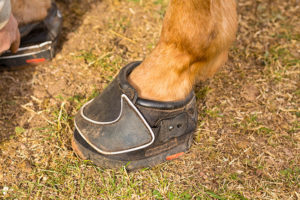
Learn about the best trimming and shoeing practices to ensure your horse stays sound while traveling the trails.
Stay on top of the most recent Horse Health news with
© 2022 Copyright Statement dolor sit amet, consetetur sadipscing User Terms, sed diam nonumy eirmod tempor invidunt ut labore et dolore magna aliquyam erat, sed diam voluptua. At vero eos et accusam et justo duo dolores et ea rebum. Stet clita kasd gubergren, no sea takimata sanctus est Lorem ipsum dolor sit amet.
"*" indicates required fields